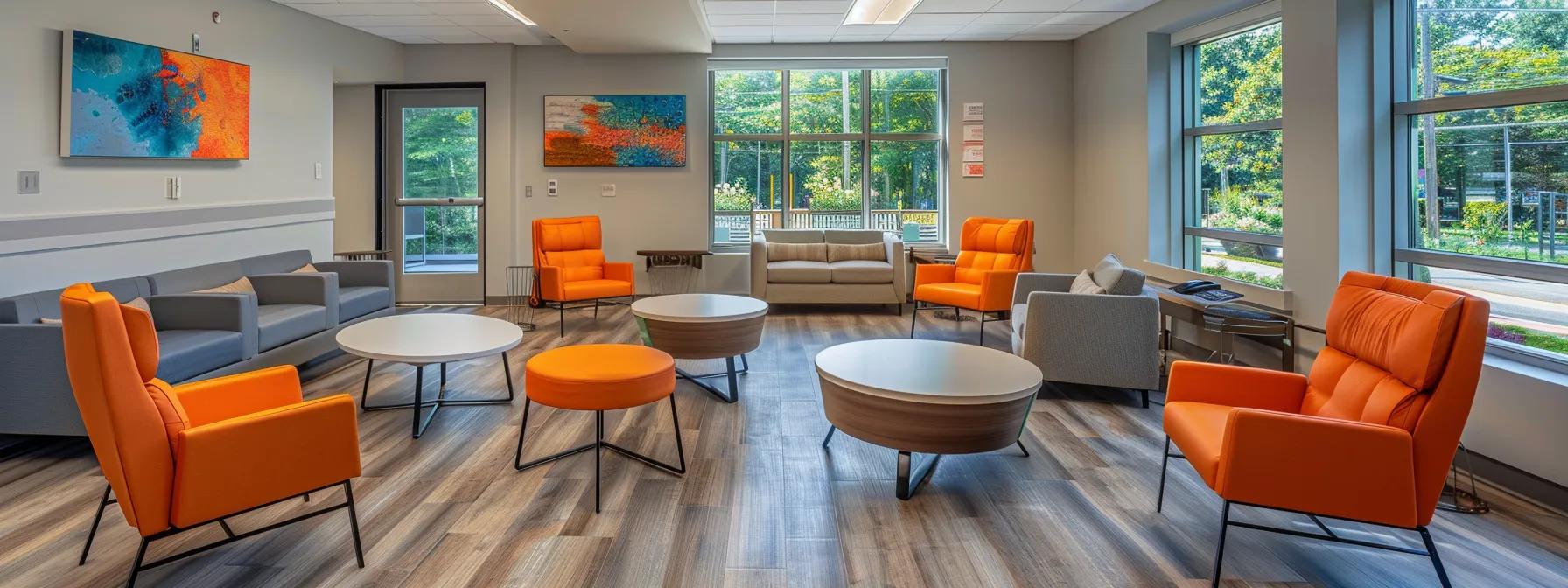Table Of Contents:
- Comparing Outpatient and Inpatient Addiction Programs in MA: Which Is Right for You?
- Understanding Core Differences Between MA Inpatient and Outpatient Addiction Programs
- How Do Outpatient Addiction Treatment Programs in Ma Compare to Inpatient Options for Specific Needs
- A Closer Look at Inpatient Addiction Programs in Massachusetts
- Examining Outpatient Addiction Treatment Programs in Ma
- Comparing Treatment Effectiveness and Success Factors in MA
- Making an Informed Choice About Addiction Programs in Massachusetts
- Frequently Asked Questions
Comparing Outpatient and Inpatient Addiction Programs in MA: Which Is Right for You?
Addiction recovery is a complex journey that requires careful consideration of treatment options for long-term success, with treatment recovery playing a central role. In Massachusetts, those seeking help for substance abuse (e.g.alcohol) must choose between inpatient and outpatient addiction programs. Each modality offers unique benefits but differs in structure, intensity, and daily integration. This article examines Massachusetts addiction treatment options by exploring core differences, comparing effectiveness for specific needs, and highlighting factors that influence the decision between inpatient and outpatient services. With evidence-based insights, expert opinions from Strength Recovery Center, and clinical research findings, the discussion is designed to empower treatment seekers and their families to findyourstrength.com and make informed decisions. Readers will learn how program duration, therapeutic modalities, housing scenarios, and personal circumstances such as work or school obligations play significant roles in choosing the optimal treatment path. The article also addresses questions regarding cost, licensing, and long-term success rates, ensuring individuals can align their recovery goals with the best approach.
By examining daily structure during addiction treatment, levels of medical supervision, and aftercare support, this guide demystifies overlapping aspects of inpatient and outpatient programs. It further explores how addiction treatment effectiveness is measured in Massachusetts through relapse prevention strategies, family involvement, and matching program type to addiction severity or co-occurring mental health conditions. Whether one seeks a structured “residential” environment away from daily stressors or requires personal flexibility while managing responsibilities, the insights provided offer clarity and direction.
Ultimately, the choice between inpatient and outpatient addiction treatment in MA is deeply personal and depends on an individual’s unique needs and circumstances. This article supplies reliable information, practical comparisons, and strategic guidance to foster successful recovery outcomes, helping readers regain control of their lives and rebuild a sustainable future.
Understanding Core Differences Between MA Inpatient and Outpatient Addiction Programs
Understanding the distinction between inpatient and outpatient addiction programs in Massachusetts is pivotal in determining which treatment modality best supports long-term recovery. Inpatient addiction treatment in Massachusetts is characterized by an immersive, residential approach where patients live at the facility for a set period and receive comprehensive, round-the-clock care and supervision. This method offers intensive therapy sessions, medical oversight, and structured daily routines that help patients focus solely on recovery without external distractions. In contrast, outpatient addiction programs offer a flexible schedule that allows patients to live at home while participating in therapy sessions and group counseling at designated times.
Defining Inpatient Addiction Treatment in Massachusetts
Inpatient addiction treatment, also known as residential treatment, is generally reserved for individuals with severe substance abuse issues or those with co-occurring mental health disorders who require intensive care. These programs create a controlled environment where patients engage in therapy, medical treatment, and recreational activities designed to build resilience against triggers. In Massachusetts, facilities like Strength Recovery Center incorporate evidence-based practices including medication-assisted treatments, cognitive behavioral therapy (CBT), and trauma-informed care. The high level of medical supervision—often provided 24/7—ensures that patients undergoing detoxification receive necessary care while minimizing early relapse risks.
This method allows clinicians to continuously monitor progress and adjust treatment plans as needed. The structured schedule, removed from familial and work-related stressors, enables patients to fully commit to recovery. Inpatient care includes intensive group and individual therapy sessions, fostering a supportive environment conducive to change, and incorporates educational sessions, exercise, and mindfulness practices to promote overall well-being.
Defining Outpatient Addiction Treatment Programs in Ma
Outpatient addiction treatment programs in Massachusetts offer a versatile option for patients whose addiction is less severe or who have external commitments that preclude full-time residential care. These programs allow patients to reside at home while attending scheduled treatment sessions throughout the week. They typically include services such as partial hospitalization (PHP), intensive outpatient programs (IOP), and standard outpatient counseling. Patients benefit from individual therapy, support groups, and relapse prevention planning while integrating recovery into their daily routines.
In outpatient settings, patients are encouraged to immediately apply learned strategies to real-world scenarios, creating a smooth transition back to everyday life. This immediate interaction with daily living helps reinforce coping mechanisms and long-term sobriety skills. Additionally, outpatient treatment is valuable for those who have completed inpatient programs and require ongoing support during transition or for individuals who prefer a model that minimizes disruption of daily responsibilities.
Key Distinctions in Program Structure and Intensity
The main difference between inpatient and outpatient treatment is the intensity and structure of care. Inpatient programs deliver intensive support and a highly structured daily regimen that eliminates external distractions, while outpatient programs offer flexibility by allowing patients to attend sessions during the day and return home. Inpatient care provides a distraction-free environment solely dedicated to recovery; outpatient care, by contrast, helps patients confront and manage everyday triggers in real time.
These structural differences also influence the therapeutic approach. Inpatient programs typically offer more frequent and diverse therapy sessions, including both group counseling and one-on-one interactions. Outpatient programs integrate treatment with real-life experiences to enhance self-management skills and pragmatic coping techniques. Health care providers conduct critical assessments to determine which setting is most likely to yield successful recovery outcomes based on various factors including addiction severity, co-occurring disorders, and the patient’s home environment.
Daily Life and Housing Considerations for Each Option
For patients in inpatient programs, recovery is supported by removing them from home and daily social environments that could contribute to relapse. The residential setting provides not only structured treatment but also housing, meals, and secured recreation, thereby minimizing exposure to triggers. Conversely, outpatient programs allow individuals to live at home, which can be advantageous if the environment is supportive and stable. However, living at home means patients must simultaneously manage personal challenges and treatment, testing their ability to implement coping strategies immediately.
This dynamic is a double-edged sword; while outpatient treatment offers a practical platform to integrate new life skills, it can also expose individuals to environments that are not conducive to early recovery stages. Therefore, assessing the stability and support system in one’s home is crucial in determining whether outpatient care is a viable option.
Typical Duration of Massachusetts Inpatient vs Outpatient Rehab
Addiction Treatment in MA duration can vary significantly between inpatient and outpatient programs. Inpatient rehab in Massachusetts typically lasts from 28 to 90 days, depending on addiction severity and the treatment plan. Extended stays provide additional opportunities for deep therapeutic work and stabilization of mental health. Outpatient programs, on the other hand, can last from a few weeks to several months, often following a tiered structure that begins with higher intensity sessions and gradually moves to less frequent follow-ups as stability increases. The length of commitment in outpatient care is highly flexible and tailored to an individual’s progress and external responsibilities. Overall, duration is a critical factor that directly influences long-term recovery and the ability to integrate relapse prevention strategies into everyday life.
How Do Outpatient Addiction Treatment Programs in Ma Compare to Inpatient Options for Specific Needs
When evaluating treatment options, it is essential to consider how both outpatient and inpatient addiction treatment programs address unique recovery needs. Outpatient programs offer flexibility that helps patients maintain everyday responsibilities, whereas inpatient programs provide the immersive support necessary for those facing severe addiction or complex co-occurring disorders. In Massachusetts, both modalities have been refined to align with varying levels of addiction severity, family support dynamics, and work-life considerations.

Assessing Severity of Addiction for Program Choice
The effectiveness of either treatment modality relies heavily on the severity of an individual’s addiction. Inpatient programs are usually recommended for those with high levels of substance dependency, where continuous medical supervision and a structured environment are essential. Such programs are designed to manage withdrawal symptoms, reduce relapse risk, and deliver intensive therapeutic interventions. For individuals with severe addiction or a history of relapse, a controlled, distraction-free inpatient environment is crucial for sustained recovery. Conversely, outpatient programs may be more suitable for individuals with moderate substance abuse issues who have the motivation and a supportive home environment to balance therapy with daily life. Clinical guidelines suggest that patients with lower risk factors and minimal co-occurring disorders are likely to succeed in outpatient settings, which allow them to maintain work, family, and social obligations while gradually implementing recovery strategies. The selection process typically includes a comprehensive assessment by addiction specialists who review medical history, psychological condition, and environmental triggers before recommending a tailored treatment protocol.
Considering Co-Occurring Mental Health Conditions
The presence of co-occurring mental health conditions is another important factor when choosing between inpatient and outpatient care. Severe depression, anxiety, or post-traumatic stress disorder (PTSD) often necessitate an inpatient setting where dual diagnosis treatment is provided alongside addiction recovery. The intensive nature of inpatient programs offers a structured and closely supervised environment for integrated psychiatric and addiction care, including medication management and trauma-focused therapies. In contrast, outpatient programs may offer specialized support for mild to moderate mental health issues without requiring complete removal from one’s home. When co-occurring disorders are present, clinicians typically favor the inpatient model to ensure constant monitoring and to minimize the risk of relapse triggered by unmanaged psychiatric symptoms. Yet, outpatient programs with robust mental health services and peer support can also be effective for patients who have achieved stability and are managing long-term symptoms.
Evaluating Your Home Environment and Support System
The home environment plays a significant role in determining the viability of outpatient treatment. A stable and supportive home environment can protect against relapse by allowing patients to apply new coping strategies immediately. However, if the home environment is marked by high stress, exposure to substances, or inadequate family support, inpatient care may be necessary to provide the safety and structure required for effective treatment. Strength Recovery Center emphasizes the importance of a coordinated support system, combining both professional and familial assistance, in achieving successful treatment outcomes. Patients are encouraged to engage in family therapy and support groups to enhance the external support network available during outpatient recovery.
Balancing Treatment With Work or School Obligations
For many individuals, fulfilling work or educational responsibilities is critical when choosing an addiction treatment program. Outpatient treatment is designed to offer flexibility, enabling patients to continue their careers or academic pursuits while receiving support. Therapy sessions can be scheduled around work or school hours, and group counseling sessions can often be held after business hours, allowing patients to maintain their daily routines. Although this modality requires careful balance between treatment and external responsibilities, it facilitates a gradual reintegration into everyday life. In contrast, inpatient programs, while offering a distraction-free environment, may temporarily disrupt professional and educational commitments. Patients must weigh the benefits of immersive care against the potential cost of losing day-to-day engagement with their external responsibilities.
Previous Treatment Experiences and Their Impact on Choice
A patient’s history with addiction treatment provides valuable insight into which setting may be most effective. Individuals with previous rehabilitation experiences, whether characterized by success or relapse, can offer insights into the benefits of a given treatment setting. Those who have succeeded in outpatient programs may favor the flexibility and continuity of care that allows them to implement lessons learned in daily life. Conversely, patients who struggled with outpatient treatment and experienced relapse might consider the structured, supportive environment of inpatient care as a necessary intervention to break the cycle of substance abuse. Often, a review of past treatment outcomes, any gaps in care, and the patient’s subjective experiences guide healthcare providers in recommending a modality that best addresses both immediate and long-term recovery needs.
A Closer Look at Inpatient Addiction Programs in Massachusetts
Inpatient addiction programs in Massachusetts offer a deeply immersive experience that equips patients with the tools necessary for successful recovery. These programs operate within a residential setting, providing 24-hour care and comprehensive supervision. Their structured nature creates a safe environment with minimal distractions, fostering an intense focus on recovery strategies. Facilities such as Strength Recovery Center incorporate various therapeutic modalities to address both substance use disorders and co-occurring mental health conditions. Patients benefit from individual therapy, group counseling, and holistic practices that enhance physical, mental, and emotional healing. Additionally, around-the-clock medical supervision is particularly important during detoxification, when withdrawal symptoms can pose immediate health risks.
The Immersive Nature of Residential Treatment in MA
Residential treatment centers in Massachusetts create a micro-community where recovery is the central focus. The immersive experience allows patients to disconnect from daily stresses and fully dedicate themselves to treatment. With structured schedules that include early morning counseling sessions, regular group therapy, educational workshops, and recreational activities, these centers reinforce discipline and routine. Peer support is a core element of the inpatient model; patients share experiences, provide mutual encouragement, and develop networks that can extend beyond the treatment period, contributing to significant breakthroughs.
Therapeutic Modalities Common in MA Inpatient Settings
Massachusetts inpatient facilities employ a range of evidence-based therapeutic modalities to target various aspects of addiction. Cognitive Behavioral Therapy (CBT) is commonly used to help patients identify and change negative thought patterns. Dialectical Behavioral Therapy (DBT) supports emotional regulation, while trauma-focused therapies address underlying issues contributing to substance abuse. In addition, medication-assisted treatment (MAT) is available for specific substance use disorders, combining FDA-approved medications with counseling. Holistic practices such as yoga, mindfulness meditation, and nutritional counseling further support both physical and mental recovery. These modalities are delivered within a highly structured environment that allows for continuous assessment and personalized treatment adjustments.
Benefits of a Structured, Distraction-Free Environment
One major benefit of inpatient addiction treatment is the complete removal from the everyday environment, which helps patients maintain focus on their recovery. A structured schedule provides consistent therapeutic interventions and minimizes opportunities for exposure to substances or negative influences. Moreover, the immersive nature of inpatient care allows patients to deeply explore personal issues, leading to improved self-awareness and coping strategies. Continuous access to medical professionals ensures that any complications during detoxification are promptly managed, laying the groundwork for long-term success by building a stable, sustainable recovery routine.
Medical Supervision and Detoxification in Massachusetts Inpatient Care
Medical supervision is a cornerstone during the detoxification phase in inpatient addiction treatment. In Massachusetts, programs are designed to manage withdrawal safely under the guidance of experienced healthcare professionals. This constant monitoring provides immediate intervention if necessary and builds the patient’s confidence in their recovery process. Strict protocols for medication management and symptom relief create an optimal setting for detoxification, preparing patients to transition to subsequent phases of recovery with a stronger foundation for both mental and emotional healing.
Transitioning From Inpatient Care to Aftercare
Effective inpatient treatment programs emphasize the transition to aftercare support. A carefully structured discharge plan is essential to sustaining long-term recovery. This plan typically includes follow-up therapy, support group involvement, and continued peer support. Patients participate in planning sessions that outline relapse prevention strategies, therapeutic follow-up appointments, and connections to community resources. The seamless transition from a structured residential environment to a more independent lifestyle helps maintain the recovery momentum established during inpatient care.
Examining Outpatient Addiction Treatment Programs in Ma
Outpatient addiction treatment programs in Massachusetts offer a flexible alternative to traditional residential care. They are designed for individuals who require ongoing support without the need for continuous medical supervision. Patients attend scheduled therapy sessions, physical activities, and group counseling while living at home. This modality is particularly beneficial for those with mild to moderate addiction issues or those whose home environments offer adequate support. Outpatient programs are structured to help patients integrate recovery into their daily lives, reinforcing therapeutic skills through real-world practice.

Flexibility Offered by Massachusetts Outpatient Rehab
Outpatient rehab in MA is structured to provide maximum flexibility by allowing patients to participate in treatment without residing at a facility. This is especially beneficial for individuals who must continue working, attending school, or managing family responsibilities. Flexible scheduling enables patients to choose sessions that fit their daily routines, improving treatment adherence. Additionally, the model affords ample opportunities to practice coping skills and relapse prevention strategies in real-life settings soon after therapy.
Types of Outpatient Programs Available in MA (PHP, IOP, Standard)
Massachusetts offers a range of outpatient treatment options that vary in intensity. Partial Hospitalization Programs (PHP) provide near full-time treatment during the day while permitting patients to return home at night. Intensive Outpatient Programs (IOP) require a rigorous schedule of therapy sessions and group counseling several times a week. Standard outpatient treatment typically includes weekly counseling sessions and support groups for individuals who have achieved a degree of stability and require less intensive care. These varied options allow clinicians to tailor treatment plans to the severity of addiction and the lifestyle needs of the patient.
Integrating Real-World Challenges During Treatment
A significant advantage of outpatient treatment is the opportunity for patients to face real-world challenges under professional guidance. Unlike the fully controlled environment of inpatient care, outpatient programs encourage immediate application of learned therapeutic techniques in everyday situations. This approach fosters resilience and adaptability as patients manage triggers and develop effective coping strategies, which in turn supports sustainable recovery.
Building Support Networks While Living at Home
Outpatient programs place strong emphasis on building robust support networks that extend beyond the treatment setting. Patients are encouraged to engage with family, friends, and community support groups to reinforce recovery practices. Many programs also include components that educate family members on supporting a loved one’s recovery, further mitigating relapse risks. Returning home each day reinforces these personal connections, allowing patients to navigate interpersonal dynamics while implementing newly acquired recovery strategies.
How Outpatient Addiction Treatment Programs in Ma Foster Independence
Outpatient treatment inherently promotes independence and personal responsibility. Patients are entrusted with managing their own daily routines while adhering to their treatment plans. This dual responsibility fosters self-efficacy as individuals learn to balance therapeutic commitments with real-life demands. The gradual shift from supervised sessions to independent implementation of recovery skills not only enhances confidence but also provides patients with the tools necessary for long-term sobriety. By fostering independence, outpatient programs help establish a self-sustaining foundation for recovery.
Comparing Treatment Effectiveness and Success Factors in MA
Evaluating the effectiveness of addiction treatment programs involves a range of success factors, including relapse prevention, family involvement, and long-term recovery outcomes. In Massachusetts, both inpatient and outpatient modalities offer distinct strengths that contribute to overall treatment effectiveness. Understanding these factors assists individuals and their families in making informed decisions about the most suitable treatment path according to their unique circumstances and recovery goals.
Measuring Success in Massachusetts Addiction Recovery
Addiction recovery success is measured using a combination of metrics, including relapse rates, patient satisfaction, and long-term sobriety outcomes. Inpatient programs are often noted for lower early relapse rates due to the controlled environment and comprehensive support during the most vulnerable phases of recovery. Outpatient programs are evaluated on their capacity to help patients integrate recovery skills into daily life and sustain stability over time. Quantitative measures such as session attendance and improvements in mental health indicators are combined with qualitative assessments from therapists to gauge overall treatment success.
Relapse Prevention Strategies in MA Inpatient and Outpatient Settings
Both treatment modalities incorporate tailored relapse prevention strategies. Inpatient programs typically implement intensive relapse prevention planning, continuous monitoring, regular therapy sessions, and personalized action plans in a controlled setting. Outpatient programs focus on teaching self-management techniques and real-time coping strategies, often integrating family therapy and peer support with community resources. Regular follow-up sessions further reinforce these strategies, reducing the risk of relapse and promoting long-term recovery.
The Role of Family Involvement in Both Treatment Types
Family involvement is critical in Massachusetts addiction recovery programs. Inpatient settings often invite family members to participate in educational workshops and therapy sessions to build a collective understanding of addiction and recovery. Outpatient programs rely on active family engagement to create a supportive home environment that reinforces recovery practices. Research indicates that patients who experience strong familial support tend to have lower relapse rates and more sustained recovery trajectories.
Long-Term Recovery Outcomes for MA Inpatient vs Outpatient Care
Long-term recovery outcomes in Massachusetts depend on the appropriateness of the chosen treatment modality coupled with robust aftercare support. Inpatient programs show notable success in the initial stages of recovery, especially for those with severe addiction profiles. However, the long-term sustainability of recovery is often enhanced when inpatient treatment is followed by structured outpatient support. Longitudinal outcomes suggest that patients transitioning from inpatient to outpatient care experience higher functional recovery and improved quality of life compared to those who rely solely on one modality.
Matching Program Type to Individual Needs for Better Results
Successful addiction recovery in Massachusetts hinges on aligning the treatment program with the individual’s specific needs, recovery history, and life circumstances. Individuals with severe addiction and limited external support may benefit more from the structured environment of inpatient care, while those with stable home environments and moderate substance use issues may find outpatient programs more appropriate. Comprehensive assessments that consider addiction severity, co-occurring mental health conditions, family dynamics, work or school obligations, and previous treatment experiences help clinicians match patients with the most effective care plan.
Making an Informed Choice About Addiction Programs in Massachusetts
Choosing the right addiction program in Massachusetts requires careful deliberation and thorough research. Whether opting for inpatient or outpatient treatment depends on factors such as the severity of substance abuse, available support at home, financial considerations, and personal treatment preferences. Informed decisions are further aided by assessing facility licenses, accreditation standards, and aftercare support services, all of which significantly enhance the likelihood of a successful recovery journey.

Questions to Ask When Considering MA Rehab Facilities
When selecting an addiction treatment facility in Massachusetts, potential patients and their families should ask pertinent questions regarding treatment modalities, the qualifications and experience of clinical staff, the structure of therapy sessions, and the specifics of available aftercare support programs. Inquiries should also cover facility licensing, accreditation, and success rates regarding relapse prevention and long-term recovery outcomes. Additional questions about dual diagnosis treatment, family counseling, and support groups can further clarify whether a facility meets multi-faceted needs. This information empowers patients to make decisions based on both statistical data and personal compatibility with the treatment approach.
Financial Aspects of Inpatient and Outpatient Care in Massachusetts
Financial considerations are a major factor in treatment decisions. Inpatient programs usually involve higher upfront costs due to full-time residential care, including housing, meals, and continuous medical supervision. Outpatient programs typically are more cost-effective since they do not require lodging expenses and allow patients to manage daily responsibilities concurrently. Prospective patients should review their health insurance policies, inquire about subsidies or state-funded programs, and discuss payment plans with treatment centers to understand the full financial implications of their chosen treatment path.
Verifying Licensing and Accreditation of MA Treatment Centers
Ensuring the quality of an addiction treatment center is essential. Prospective patients should verify that a facility is licensed by the appropriate state authorities and accredited by organizations such as The Joint Commission. Accreditation ensures the center adheres to stringent standards of care, including evidence-based protocols, qualified staffing, and comprehensive patient support services. Verifying these credentials is a critical step in safeguarding health and ensuring treatment is grounded in validated clinical practices.
Finding the Right Fit – A Guide to Outpatient and Inpatient Addiction Programs in Massachusetts
Choosing the ideal addiction treatment program in MA involves matching treatment options with the individual’s unique circumstances and recovery goals. By considering factors such as the severity of addiction, home environment stability, financial implications, and the need for family involvement, patients can better determine which modality offers the best chance for lasting sobriety. Comprehensive assessments conducted by clinical professionals, including evaluations of previous treatment experiences, are vital in this process. Informed decisions backed by transparent information about program structures, success rates, and aftercare services pave the way for a personalized recovery journey.
Next Steps After Selecting a Massachusetts Drug Rehab Option
After choosing the most suitable addiction treatment program in MA, it is important to understand the next steps in the recovery journey. This typically involves scheduling an initial consultation, completing necessary paperwork, and beginning a tailored treatment plan under the supervision of addiction specialists. An orientation process familiarizes patients with the therapeutic schedule, expectations, and guidelines for both inpatient and outpatient settings. For inpatient care, preparation for detoxification and residential living marks the initial phase; for outpatient care, coordinating session schedules with work or school commitments is key. Establishing a strong aftercare plan—including therapy follow-ups and support group participation—is essential to ensure recovery continues seamlessly beyond the formal treatment period.
Frequently Asked Questions
Q: What are the primary differences between inpatient and outpatient addiction programs in Massachusetts?
A: The primary differences lie in the level of supervision, intensity, and daily structure. Inpatient programs provide a controlled, residential environment with 24/7 medical supervision and structured therapy sessions, often including detoxification and intensive counseling. Outpatient programs enable individuals to live at home while attending scheduled treatment sessions and integrating recovery into their daily lives. The choice depends on the severity of addiction, available support systems, and personal responsibilities.
Q: How does the severity of addiction affect the choice between inpatient and outpatient care?
A: The severity of addiction is crucial in determining the appropriate treatment setting. Individuals with more severe substance dependencies or a history of relapse tend to benefit from the intensive, structured environment of inpatient care. In contrast, those with milder addictions or stable home support may find outpatient programs sufficient while still managing daily obligations. Comprehensive assessments by healthcare professionals help determine the best approach based on these factors.
Q: Can outpatient treatment effectively prevent relapse in a real-world setting?
A: Yes, outpatient treatment can effectively prevent relapse, especially when combined with strong family support and aftercare services. These programs focus on teaching practical coping strategies that patients can apply in daily life, thereby promoting long-term sobriety. Regular therapy sessions, peer support groups, and structured relapse prevention planning help reduce the risk of relapse after formal treatment ends.
Q: How do financial considerations influence the choice between inpatient and outpatient addiction programs?
A: Financial factors play a significant role. Inpatient programs generally incur higher costs due to full-time residential care, including housing, meals, and round-the-clock supervision, whereas outpatient programs are typically more cost-effective. Patients are advised to review their insurance policies, inquire about subsidies or state-funded programs, and discuss payment plans with treatment centers to understand the financial implications.
Q: What should patients look for when verifying the credibility of a Massachusetts addiction treatment facility?
A: Patients should ensure the facility is properly licensed by state authorities and accredited by recognized organizations such as The Joint Commission. Reviewing patient testimonials, treatment statistics, and the qualifications of clinical staff, as well as assessing the quality of aftercare support, can help verify a facility’s credibility and overall effectiveness.
Q: How is aftercare support integrated into both inpatient and outpatient programs?
A: Aftercare support is a vital phase of the recovery process. Inpatient facilities typically develop a comprehensive discharge plan that includes follow-up therapy, support group involvement, and continued monitoring. Outpatient programs emphasize ongoing therapy and regular check-ins to reinforce relapse prevention. Both modalities aim to ensure that once primary treatment ends, patients have access to resources that help maintain sobriety.
Q: What impact does family involvement have on the recovery process in Massachusetts addiction programs?
A: Family involvement is key to successful recovery. Inpatient programs often incorporate family education and counseling sessions to build a collective understanding of addiction, while outpatient programs rely on active family engagement to create a supportive home environment. Strong family support helps improve communication, foster accountability, and reduce relapse risk, thereby contributing to more sustained recovery.



